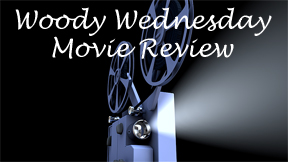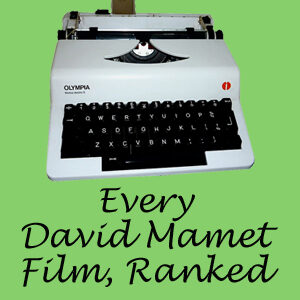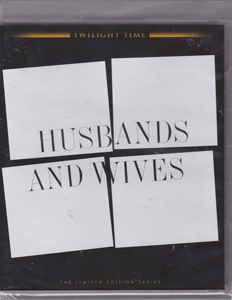Woody Allen bounces back from perhaps his worst movie, “Shadows and Fog” (1991), with one of his best: “Husbands and Wives” (1992). He gets back to his comfort zone of exploring the nature of relationships.
Consistently funny
Certainly, “Manhattan” (1979) comes to mind when Allen’s middle-aged English professor Gabe becomes smitten with worshipful 20-year-old student Rain (Juliette Lewis, currently in “Yellowjackets”). But no two Woody movies are exactly the same, even though he revisits themes.
“Husbands and Wives” is funny from start to finish despite having no pratfall humor, zingers or snort-worthy non sequiturs. The humor is like a comfortable breeze. It’s consistently funny to see adults analyze their decisions about love and relationships. They think they are being rational, but we see they are trying to trick themselves.

“Husbands and Wives” (1992)
Director: Woody Allen
Writer: Woody Allen
Stars: Woody Allen, Mia Farrow, Sydney Pollack
“H&W” directly digs into the “grass is greener” phenomenon. Setting aside open marriages, it’s impossible for a person to be both married and single at the same time. So whatever status you have, you’ll have some envy of the other status, which you don’t have.
Four top-of-their-game actors play this out. Jack and Sally (Sydney Pollack and Judy Davis) tell their friends Gabe and Judy (Mia Farrow) they are amicably splitting up. As those two explore newly single life, Jack and Sally dream about theoretically greener grass. Gabe eyes Rain, and Judy eyes coworker Michael (Liam Neeson).
Documentary style
A great supporting turn comes from Cristi Conaway as aerobics instructor Shawn, who is good for Jack off the bat … until she embarrasses him at intellectual gatherings by talking about the Zodiac and alignment of planets.
A funny flashback segment comes after Gabe and Rain run into Rain’s ex (Ron Rifkin). So she has a thing for older men, Gabe thinks. But Rain’s full explanation is hilarious in its absurdity. Rain met Rifkin’s character via two previous older men she dated.
These purposely heightened bits don’t detract from the grounded scenarios, such as Sally being nervous about Michael’s fast advances. “H&W’s” distinct style keeps everything on the same level, in a good way.
Although he has characters play out scenarios to contrast marriage with dating, Allen recognizes this is mostly an analytical question in real life. By embracing its analytical core, “H&W” becomes daringly stylized in a way we hadn’t seen from Allen since “Annie Hall.”
Carlo di Palma is again on hand as Allen’s cinematographer, but “H&W” is not so much concerned with visual beauty (although we do get flirty autumn-in-the-park walk-and-talks). Rather, the memorable camerawork trait is the handheld documentary style.

Stumbling toward maturity
Technically, the off-screen documentarian/interviewer (voiced by Jeffrey Kurland) can’t be present at all these intimate moments. None of the participants would agree to that, especially Sally, who struggles with intimacy. (Also, of course, genuinely natural moments can’t happen when participants know they are being filmed.)
But because “H&W” uses the documentary style from page one, we have to accept it in order to go on the ride. I quickly got used to it.
Another piece of stylization comes when Gabe discusses his novel-in-progress to Rain, who thinks the manuscript is brilliant but has problems with Gabe’s perspective on women. As Gabe defends his novel, Allen is defending his point of view to film critics and viewers.
In a more direct faux-umentary touch later popularized by “The Office,” the off-screen interviewer poses questions to Gabe, who is willing to answer them honestly (just as Allen is open about personal foibles via his art). Why is Gabe fascinated by a 20-year-old’s perspective while brushing aside that of his wife?
He doesn’t know. But he does know that rational thought isn’t in play. When you boil it down, that might be what defines maturity. In middle age, Gabe has accepted that he doesn’t know.

